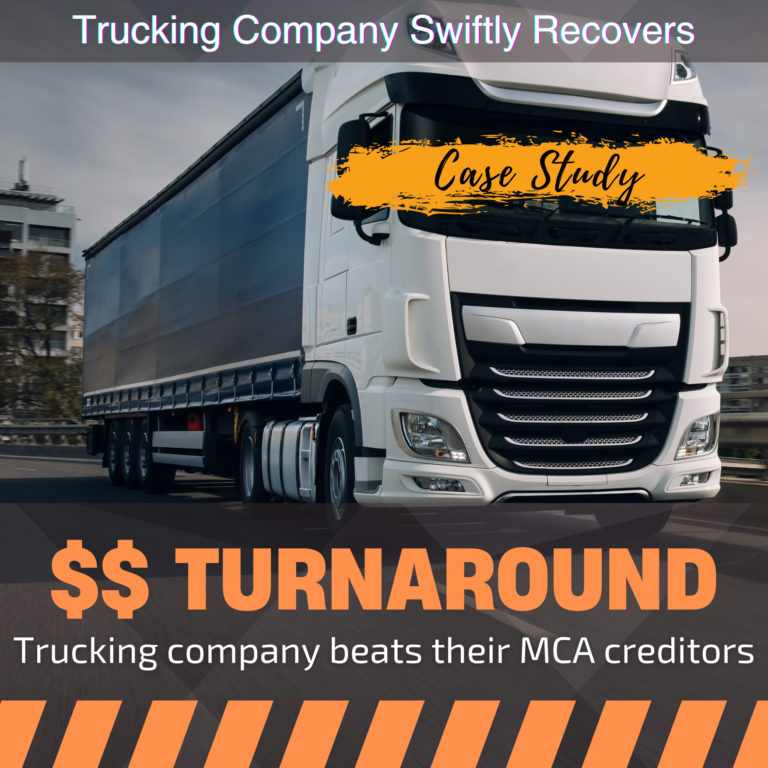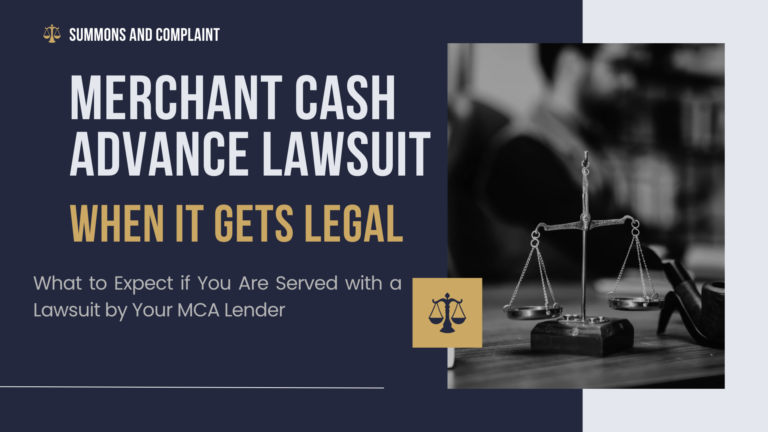As a business owner, you may have obtained a merchant cash advance (MCA) to help cover some of your expenses. An MCA is a short-term loan that is repaid through a set percentage of your future credit card sales or other receivables. If you’re experiencing difficulty making your MCA payments, it’s important to address whether your cash flow can sustain your MCA servicing.

If you are thinking of getting an MCA or stacking another MCA to service your existing debt, you should consider if the terms and repayment schedule work with your cash flow. You must ensure you can manage the payments without straining your business’s finances or detrimentally affecting customer service levels.
When servicing an MCA, it is important to know exactly how much of each sale goes toward repaying the advance. Many companies use a factor rate to determine the total cost of the advance, which can be confusing. Additionally, if your business experiences a dip in sales or customers pay with cash instead of credit cards, this can negatively affect your repayment schedule.
MCA Servicing Litigation
As MCA debt servicing becomes more difficult for some business owners, there has been increased litigation aimed at MCA providers. It is important to note that litigation might not solve the underlying issue or make servicing any easier. Business owners must still be mindful of their repayment schedule and ensure that they do not take on more debt than their business can reasonably handle.
The New York Attorney General sued a lender for allegedly threatening violence and kidnapping as methods to collect payments from borrowers. In addition, the FTC charged a group of MCA operators with bilking small businesses out of millions of dollars by using deceptive tactics and exorbitant annual interest rates in the hundreds and thousands of percent, one nearing an annual interest rate of 4,000 percent.
It is important to be informed when obtaining any type of business financing, including MCAs. If you are considering an MCA, be sure to read the terms thoroughly and understand the repayment schedule. Be sure to ask questions and seek professional advice if needed. If you are already servicing an MCA, be mindful of the payments due, as they could cost more than originally anticipated. Also, remember that litigation may not always be the answer when trying to service debt. Knowing your options can help you make informed decisions regarding your business finances.
New York Attorney General and MCAs
The New York Attorney General Letitia James announced on March 2, 2020, that she was suing a predatory lender for threatening violence and kidnapping against small business owners. The lawsuit alleges that the lender engaged in abusive and illegal lending practices, including making false threats of violence and kidnapping to extort payments from small business owners. The lender, which offered merchant cash advances (MCAs), allegedly charged exorbitant interest rates of up to 4,000 percent per year.
Attorney General James has made it clear that she is committed to ending the abusive and illegal practices of MCA providers and bringing relief to small business owners who have been harmed by them.
The FTC has also taken aim at MCA lenders for deceptive practices such as making false claims about the cost of their services, misrepresenting repayment terms, or failing to disclose all costs associated with the loans. In June 2021, seven MCA operators settled FTC charges that they bilked small businesses out of millions by deceiving them about the costs and terms of their products.
FTC and the MCAs
Merchant cash advance operators have agreed to settle Federal Trade Commission (FTC) charges that they deceived small businesses into thinking they were getting low-interest loans when in reality, they were paying high-interest rates and sometimes hidden fees.
The FTC’s complaint alleged that the operators of these businesses falsely told small business owners that they were getting low-interest loans when in reality, they were paying high-interest rates and sometimes hidden fees. The FTC also alleged that the operators of these businesses often misrepresented the terms of the loans, failed to disclose all costs associated with the loans, and pressured small business owners into taking out more money than they needed.
As part of the settlement, the operators of these businesses are banned from making any misrepresentations about the cost or terms of any financial products they offer, including merchant cash advances. They must disclose all costs associated with a loan before a business owner agrees to it.
This settlement should serve as a warning to other MCA operators that engage in deceptive practices. The FTC will not hesitate to take action against them if they are found guilty of misleading small businesses.
MCA Risks
When considering an MCA, understand the risks and make sure you can afford the payments. If you are already servicing MCA debt, consider reducing outstanding balances such as increasing sales, restructuring existing loans, or starting a debt settlement process. With proper planning and understanding of your business’s finances, you can keep up with MCA servicing, but if you find yourself not taking a paycheck or unable to float your business operations, it’s time to consider making some changes.
No matter what path you choose, a financial professional can provide insight and assistance in navigating through the MCA servicing process. They can help you decide whether an MCA is the right choice for your business or discuss alternative repayment and financing options available to you.
This is not intended as legal advice, and it is important to ensure you understand all the terms of your MCA agreement before entering into a loan obligation. It’s always best to consult with an expert in managing MCA servicing obligations before taking on any debt.
MCA Collections
Here is a list of collection tactics MCAs might use against you if you default.
- Threatening to take legal action
- Threatening to call the police
- Threatening to report the debt to credit agencies
- Making harassing phone calls
- Sending threatening letters
- Making false accusations of fraud or other illegal activity
- Refusing to provide copies of MCA contracts or loan documents
- Demanding payment for more than the actual balance due
- Charging additional fees beyond those listed in MCA agreements
- Demanding payments by wire transfer instead of cash, check, or credit card
- Misrepresenting MCA interest rates and repayment terms
- Refusing to provide proof of MCA debt owed or payment history
- Failing to provide MCA loan documents when requested
- Attempting to collect MCA payments from people who are not obligated to pay them
The MCA collection process can be complex and intimidating. If you are facing MCA collections, it is important to understand your rights, as well as the MCA collections process. Working with an experienced financial professional can help you navigate MCA collections and ensure that any payments you make are accurate and compliant.
Similar Posts










